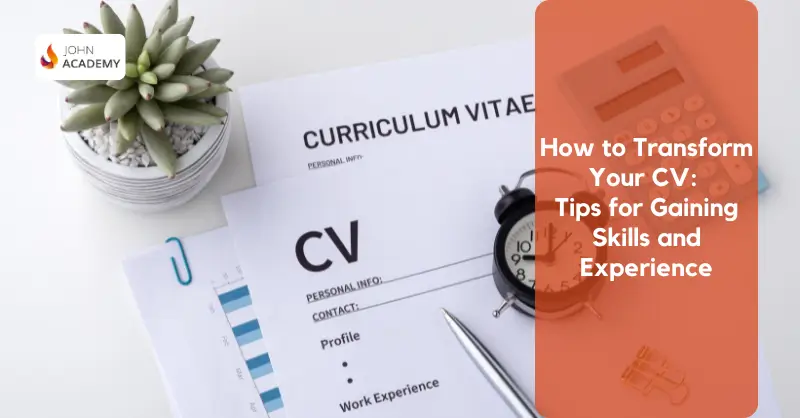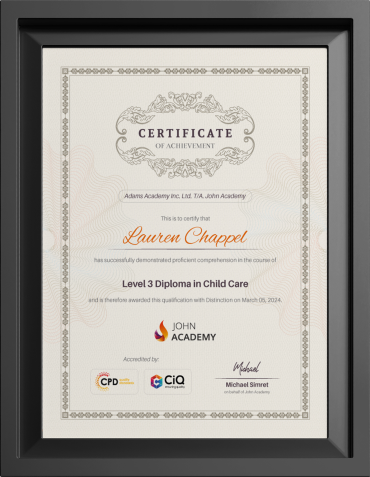
Your CV is one of the most important documents when applying for jobs. A well-written, professional CV can help you stand out from other candidates and land an interview. However, creating an impactful CV takes time and effort. This article provides tips on how to transform your CV by gaining relevant skills and experience. Read on to learn strategies for developing a CV that impresses hiring managers.
Writing an Effective CV
Before delving into ways to improve your CV’s content, first ensure you have the basic CV structure and formatting down. Use a font like Calibri or Times New Roman in size 11 or 12. Organise your CV with clear section headings like Work Experience, Education, and Skills. Bullet point duties and achievements for each role you list. Be concise – a 2-page CV is ideal for most candidates. Consider using a professional CV template to give your document a polished look. Proofread your CV carefully to avoid any spelling or grammar errors.
Gaining Relevant Skills
One of the best ways to improve your CV is by gaining skills that are attractive to employers in your field. You should consider learning technical skills relevant to your industry like using software programmes and tools, transferable skills applicable to many roles like communication, teamwork and project management, language skills or professional certifications that add value. You can gain new skills through several routes: Formal education like a degree, vocational course or online learning; on-the-job training and apprenticeships; volunteering and taking on side projects; self-study through books, videos and online tutorials. List all new relevant skills on your CV under a Skills or Key Skills section. Briefly explain where and how you gained each skill. Keep your skills section updated as you build expertise.
Highlighting Transferable Skills
Many skills gained through education, work and other experiences are transferable to a variety of roles and industries. Be sure to identify transferable skills you have developed such as communication, teamwork, problem-solving and time management. Explain how you applied these skills in previous positions and how they are relevant to the job you are applying for. Emphasising transferable skills shows versatility and capability. Focus on skills that align with the employer’s needs.
Getting Relevant Experience
Along with skills, relevant work experience makes any CV stand out. There are multiple ways to get experience without formally being employed somewhere:
Internships provide a great opportunity for students/recent grads to gain entry-level experience. They often last a few months up to a year and can lead to a permanent job offer. Volunteering for charities or nonprofits allows you to build your skills and shows initiative and dedication. You can add volunteering as Work Experience on your CV. Offering your services as a freelancer in your field builds a portfolio and provides valuable experience. You can list your freelancing details under Work Experience. Getting a side job (even in retail/hospitality) shows responsibility and provides references and transferable skills. It also demonstrates you can manage your time. Detail all experience on your CV, highlighting transferable skills gained. Quantify achievements and responsibilities for each role.
Achieving Results
More than just listing skills and experience on your CV, you need to demonstrate the impact you made in each position. You should focus on tangible achievements, projects completed and positive outcomes you achieved. Use powerful action words like “increased”, “improved” and “expanded”. Add statistics and figures like “improved sales by 20%”. Emphasise how you added value and made a difference. Showcasing clear accomplishments makes your CV more compelling and helps you stand out. Tailor achievements to each application.
Customising Your CV
When applying for jobs, be sure to customise your CV to match each role. Carefully read the job description highlighting required and desired skills and experience. Then tailor your CV to emphasise how you meet the specific qualifications. Mention keywords and phrases directly from the job posting in your CV. Review and update your CV for each application to increase your chances of getting an interview. Keep a master CV with all your details to easily customise.
Developing a strong CV takes time, but following the tips in this article will help you transform your CV. Focus on gaining relevant skills through training and study. Look for opportunities to get hands-on experience through work placements, volunteering and freelancing. And emphasise the positive impact you made in each role. With a professional CV showcasing your growth, you can impress hiring managers and achieve your dream job.

